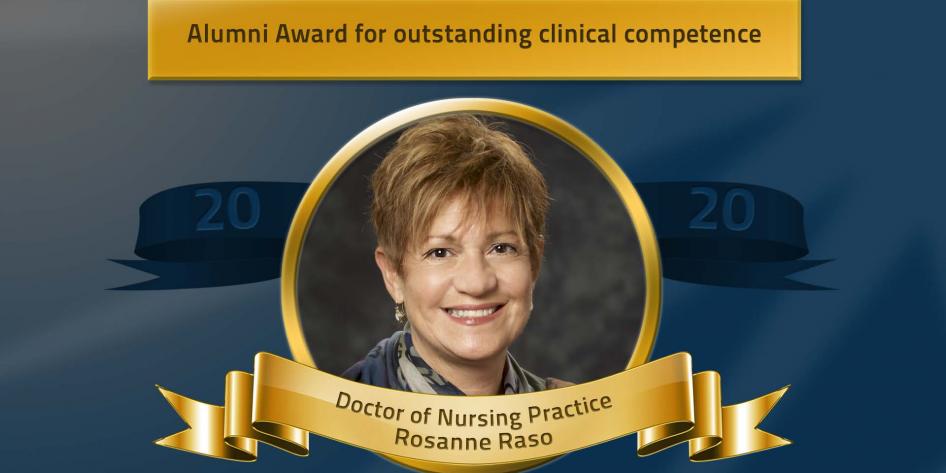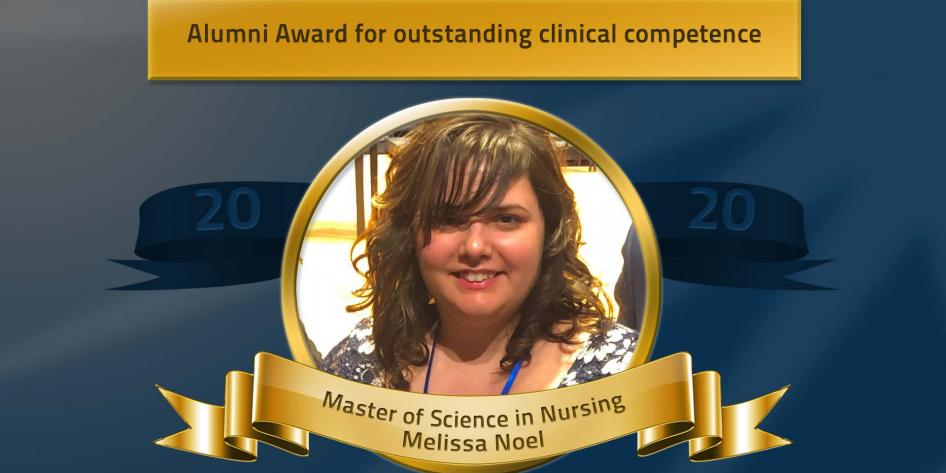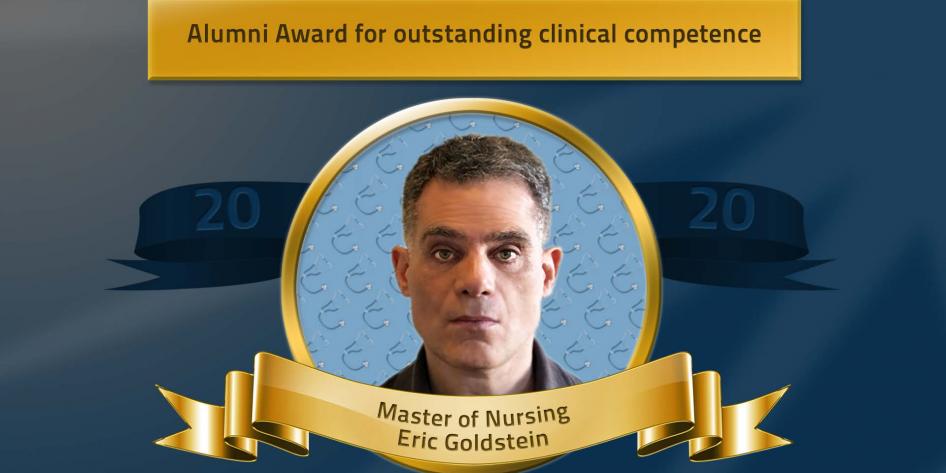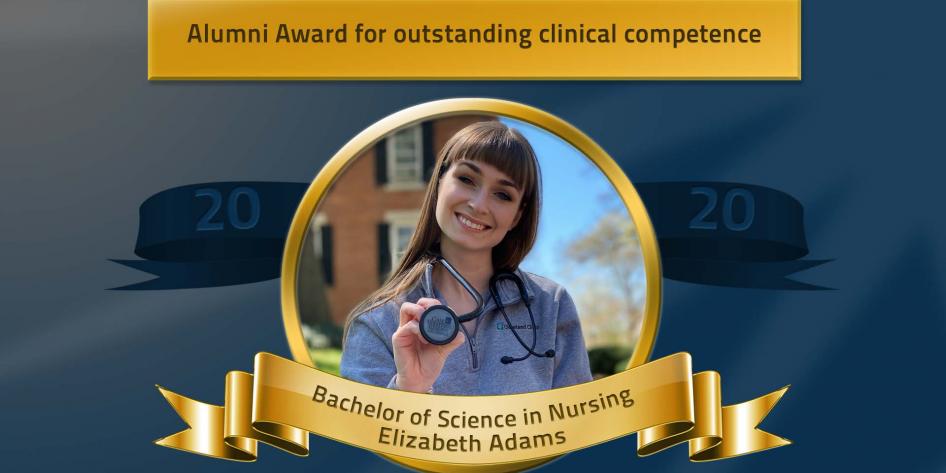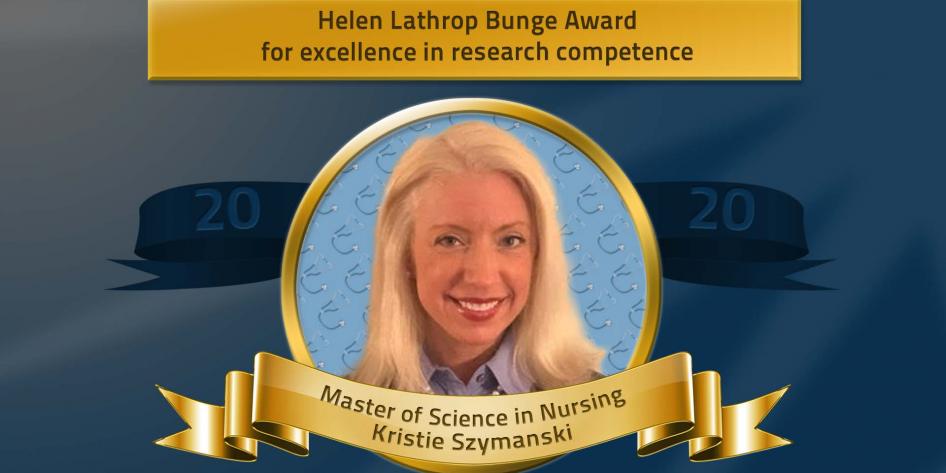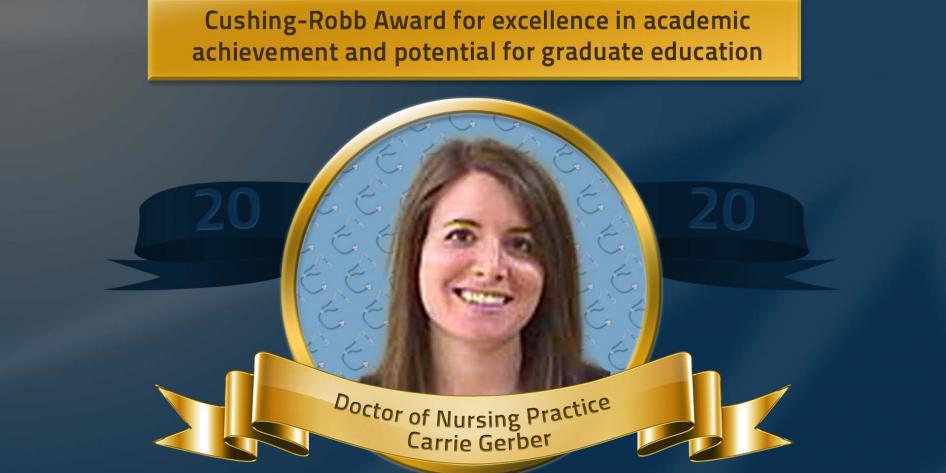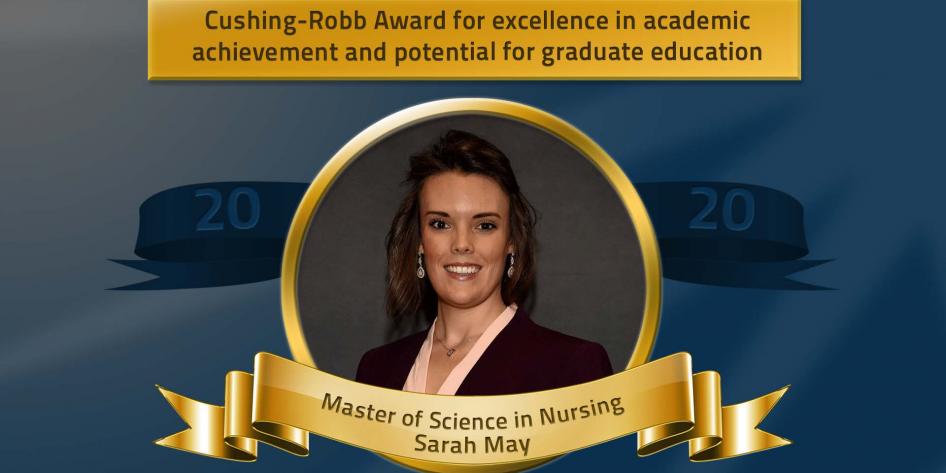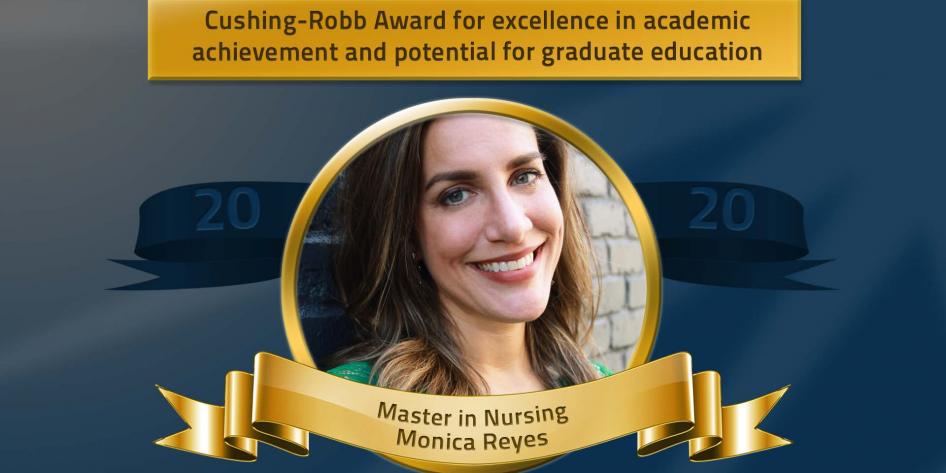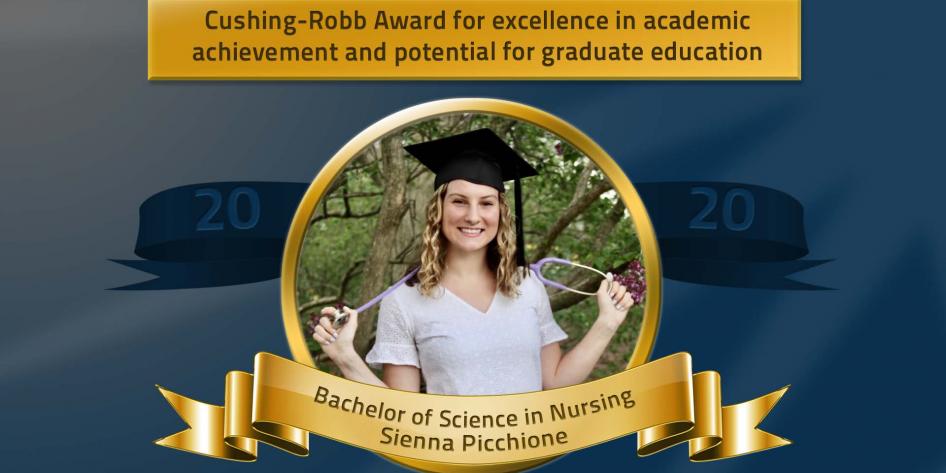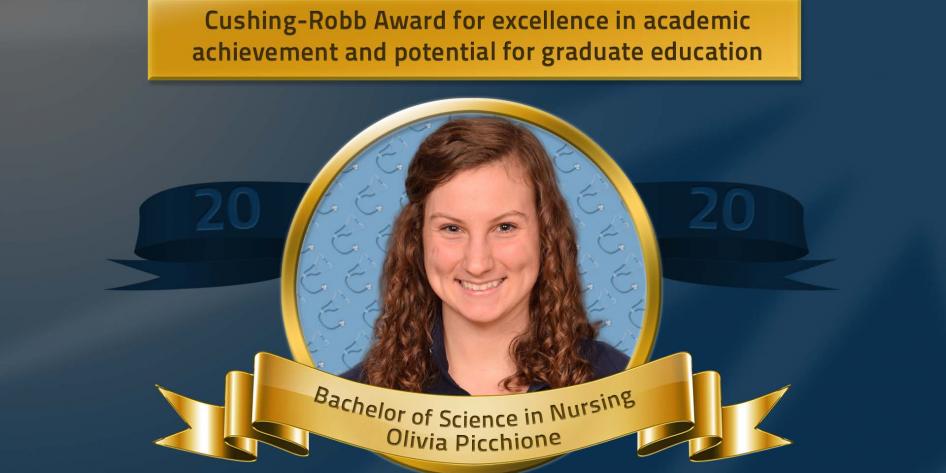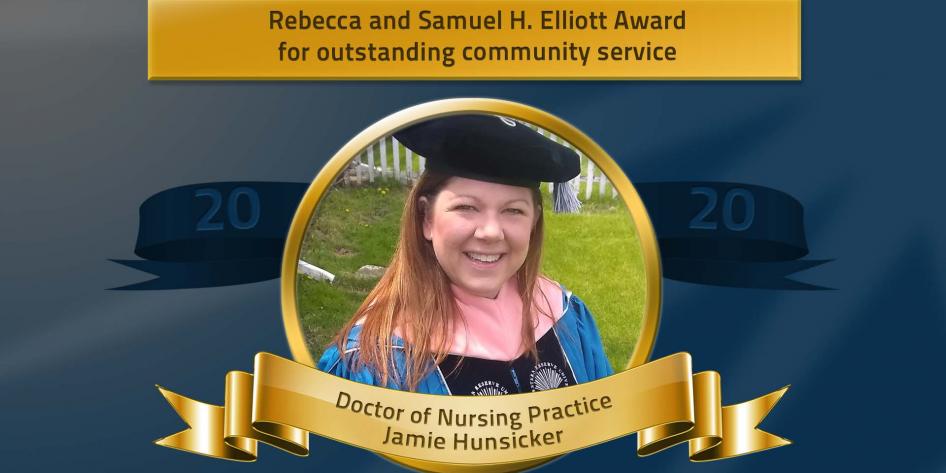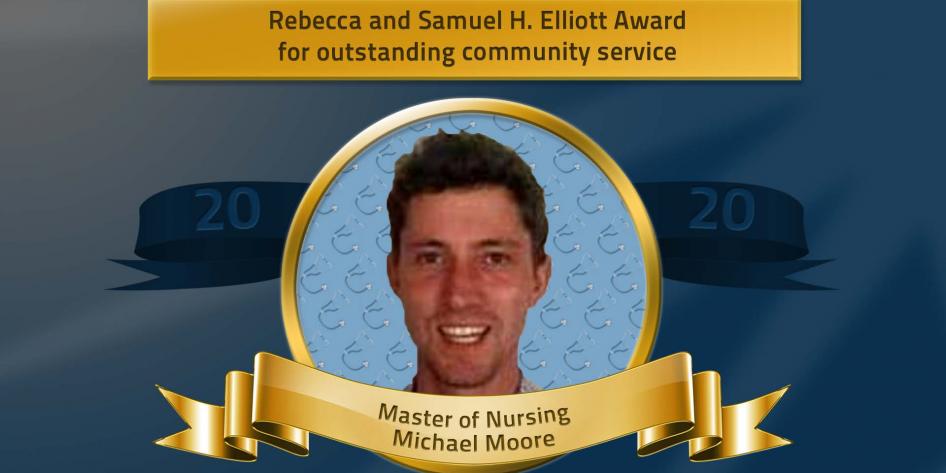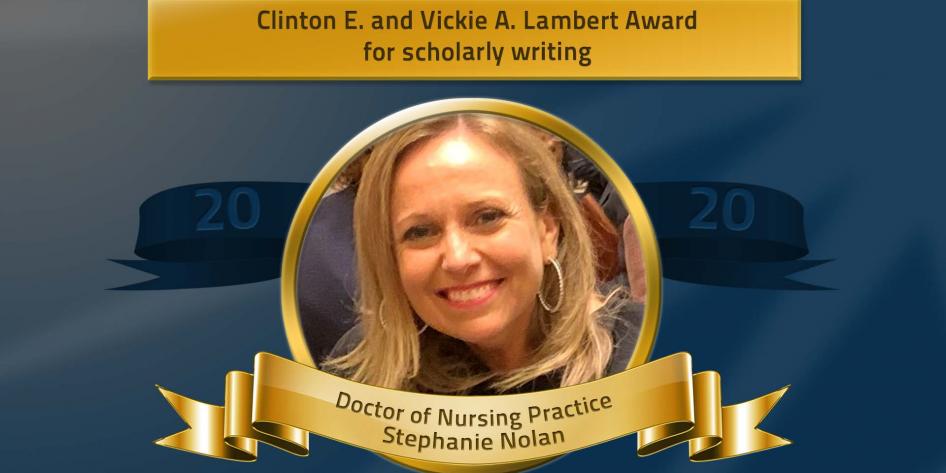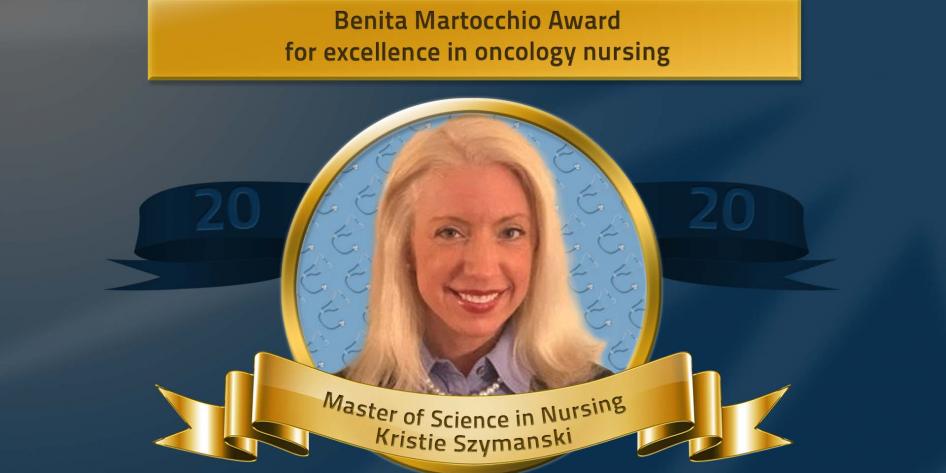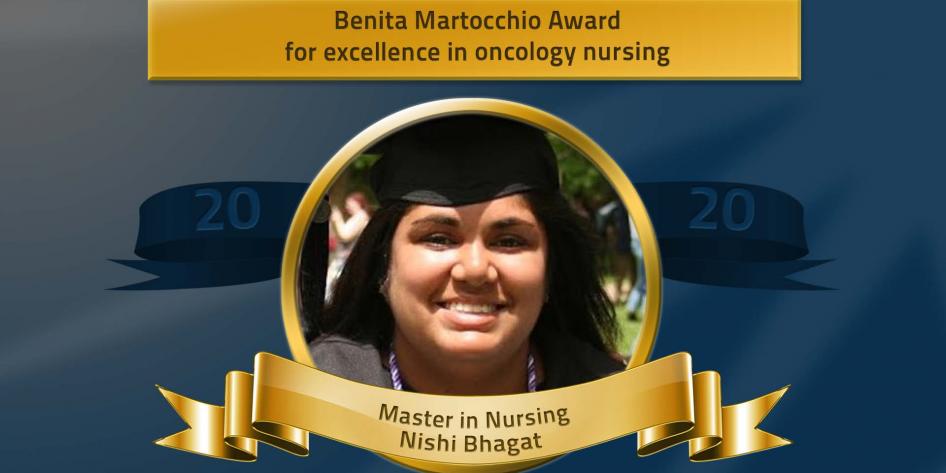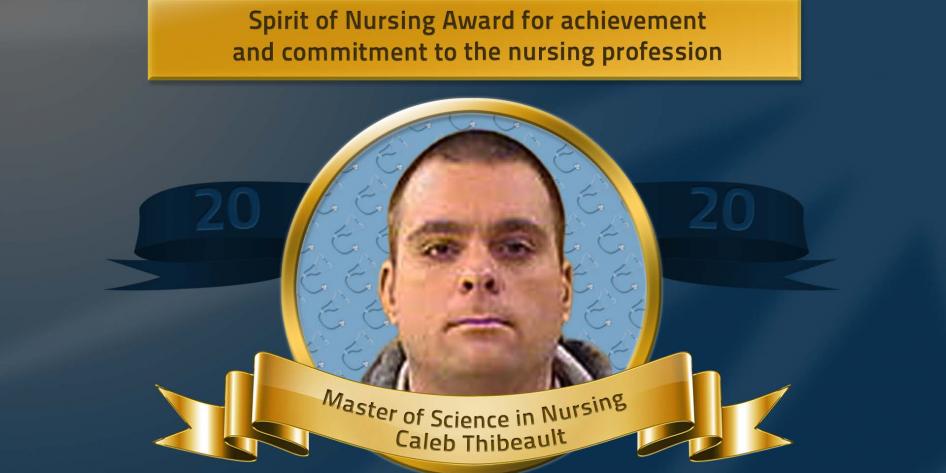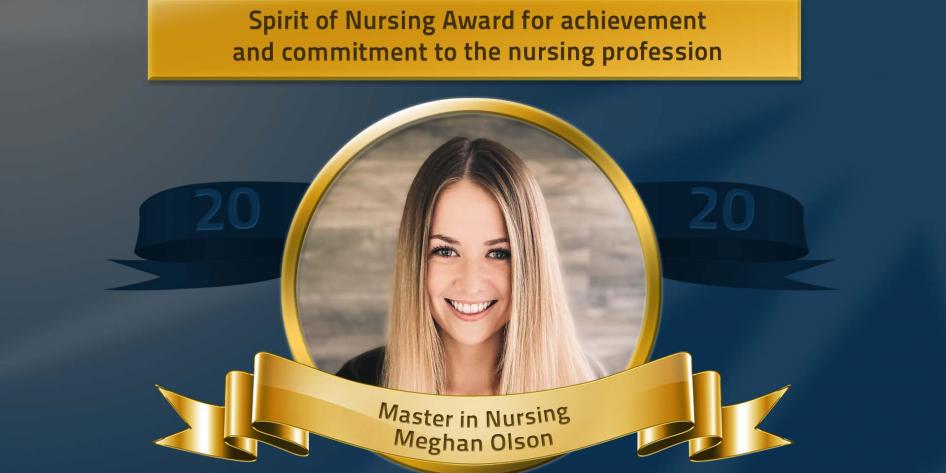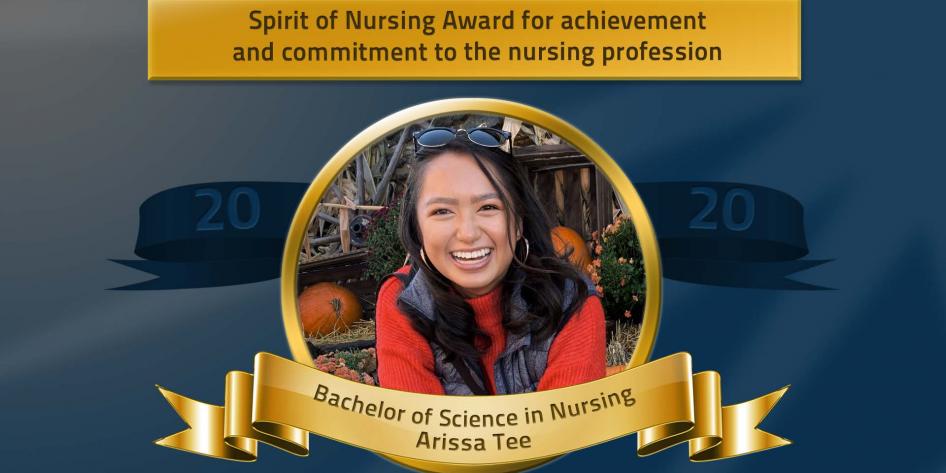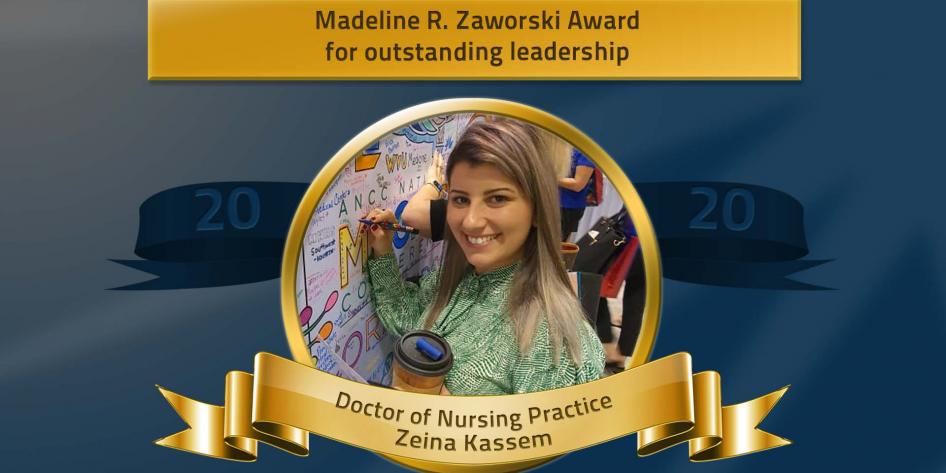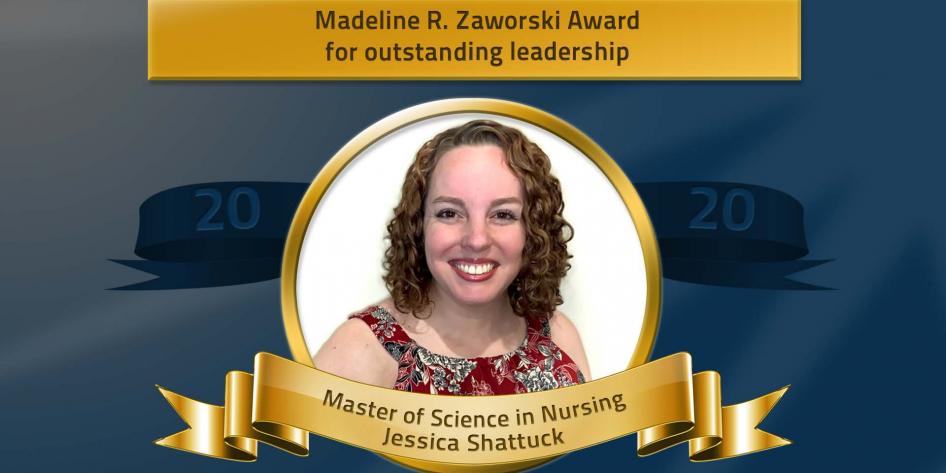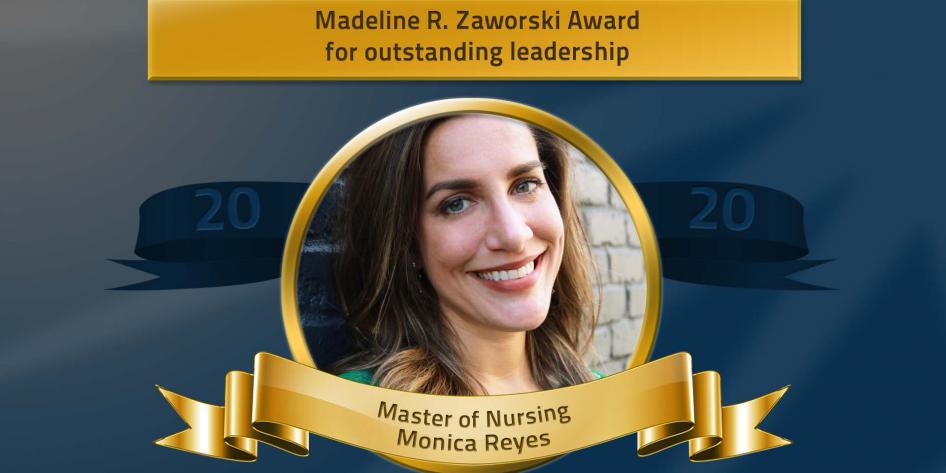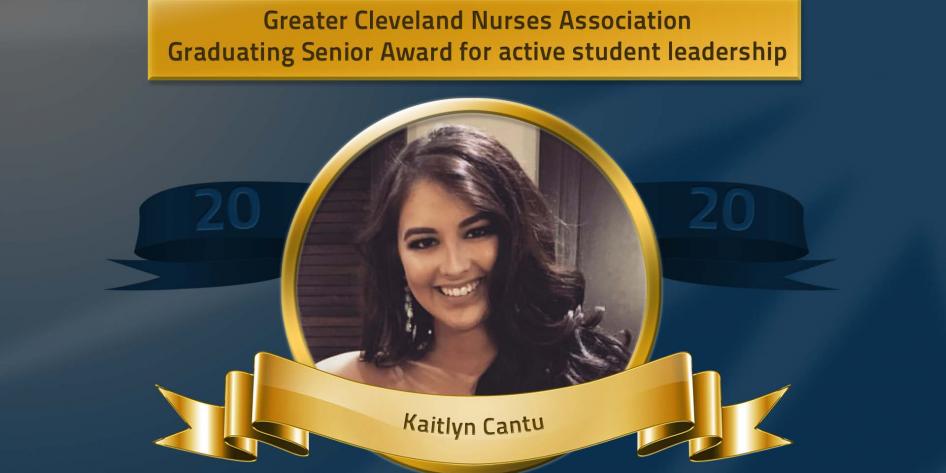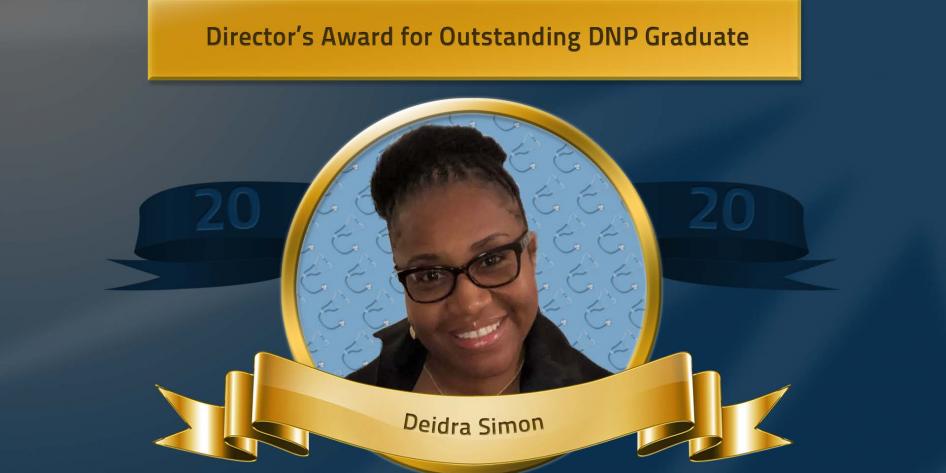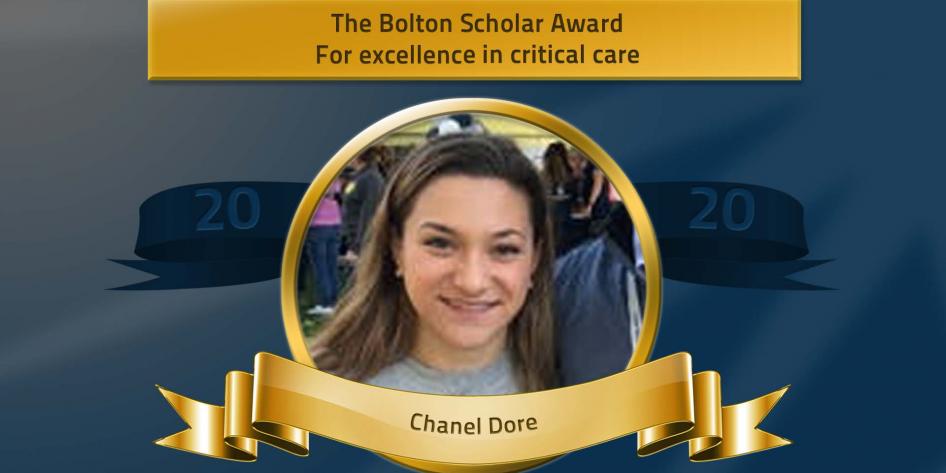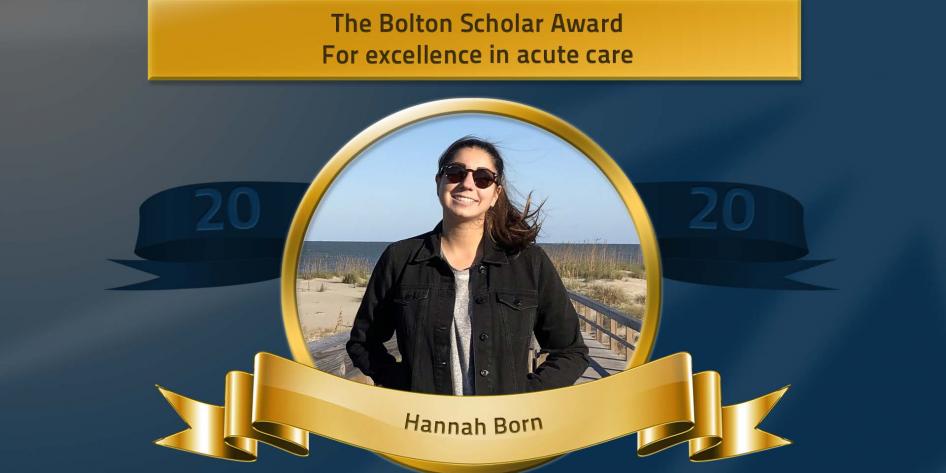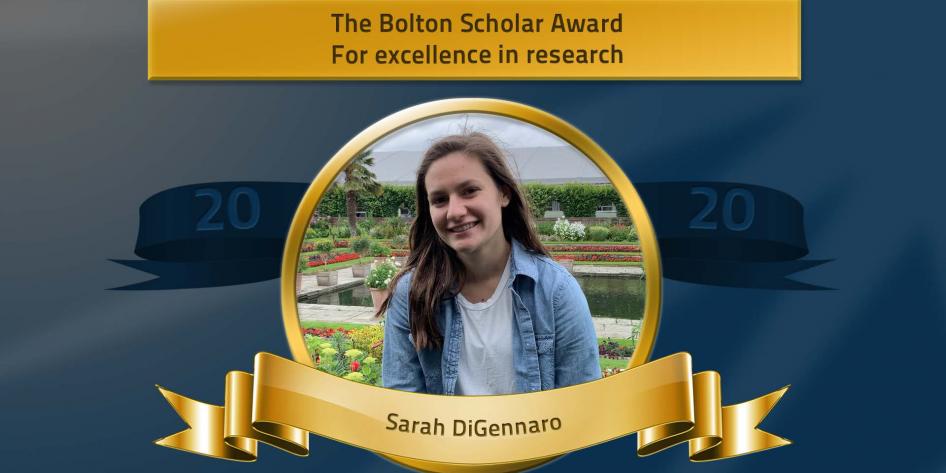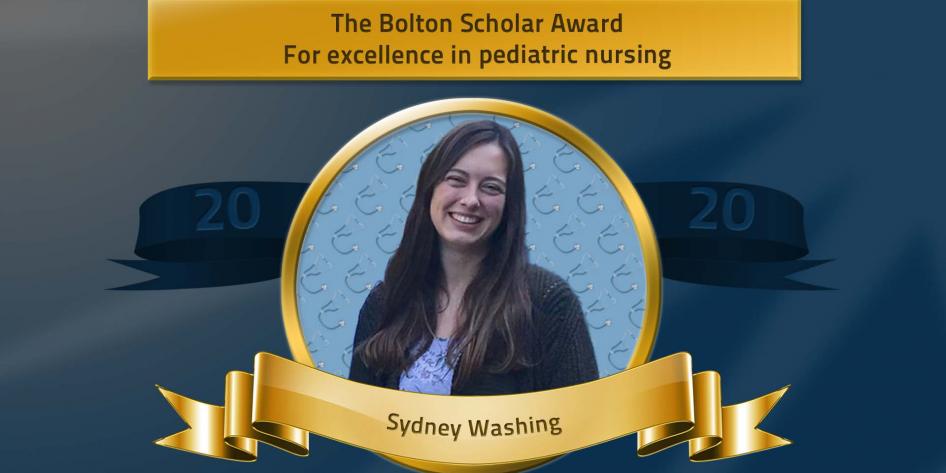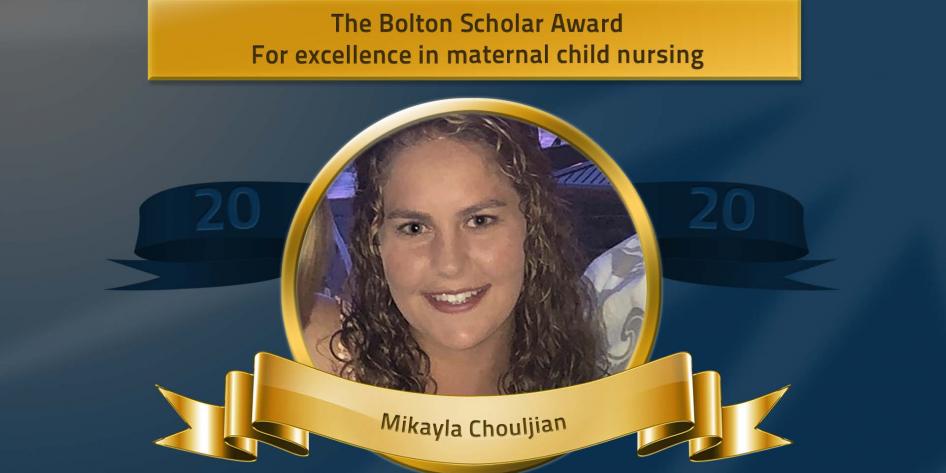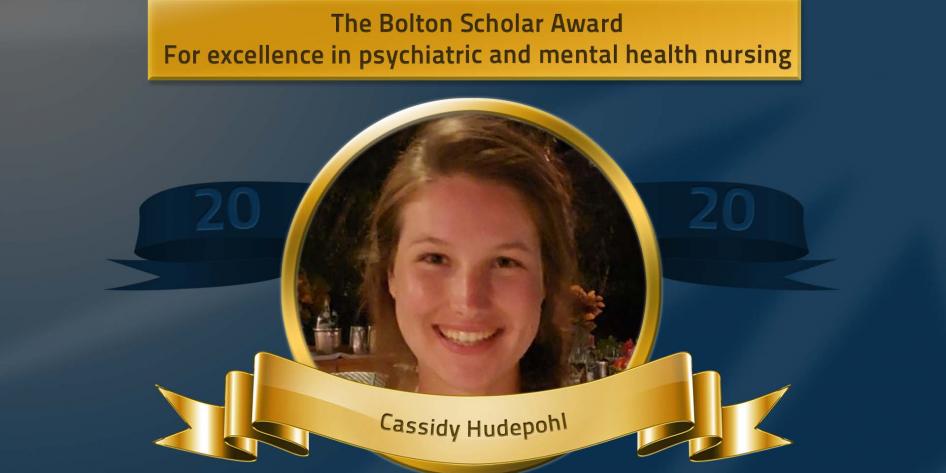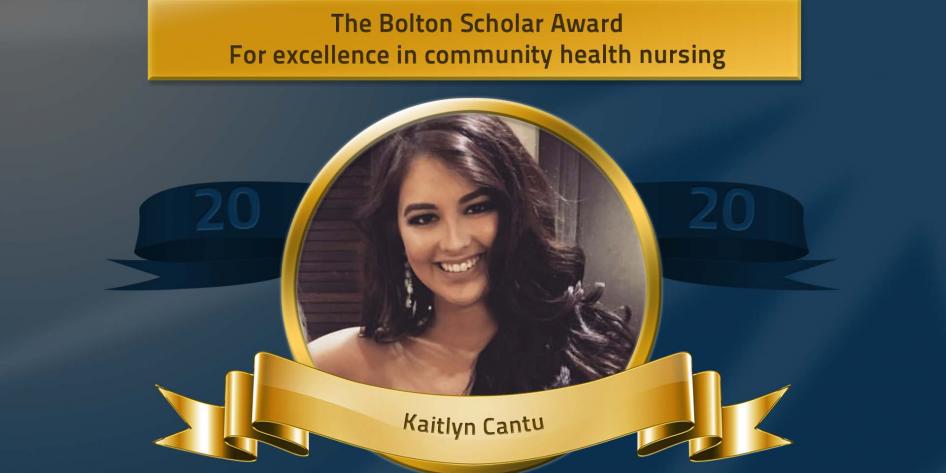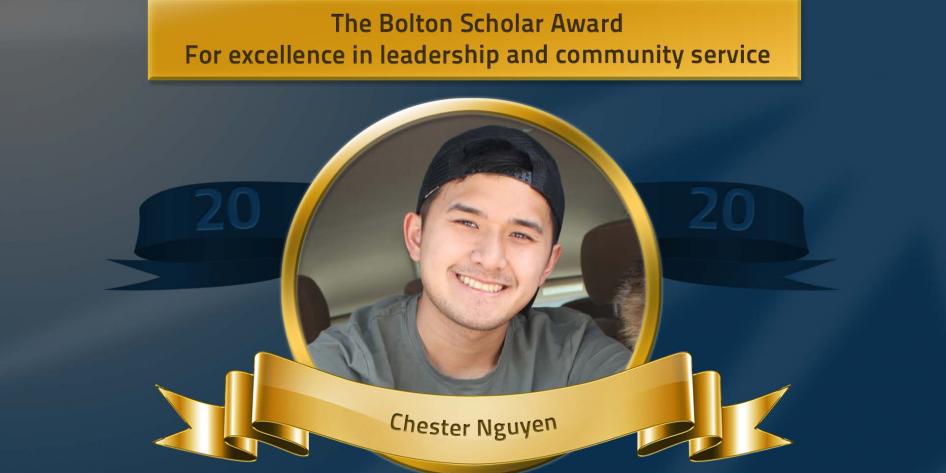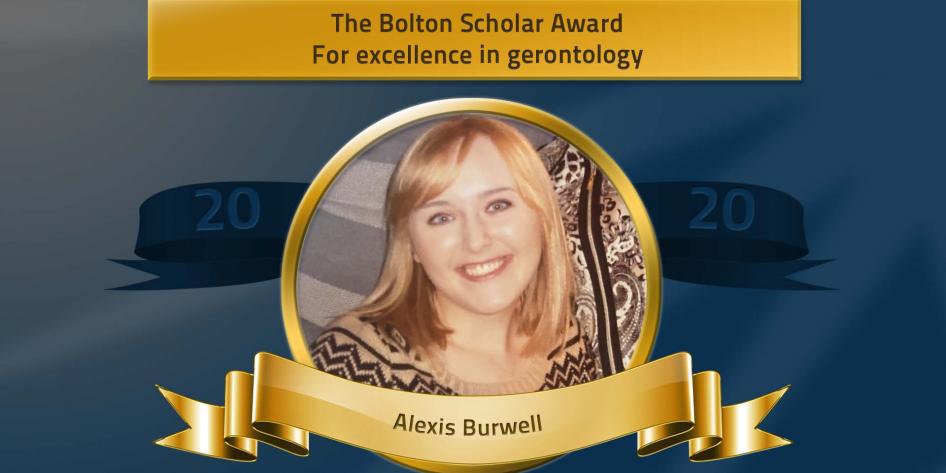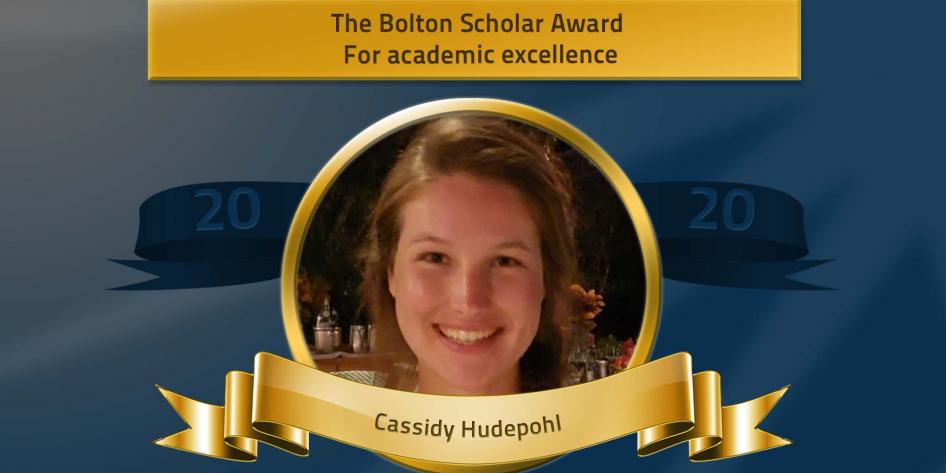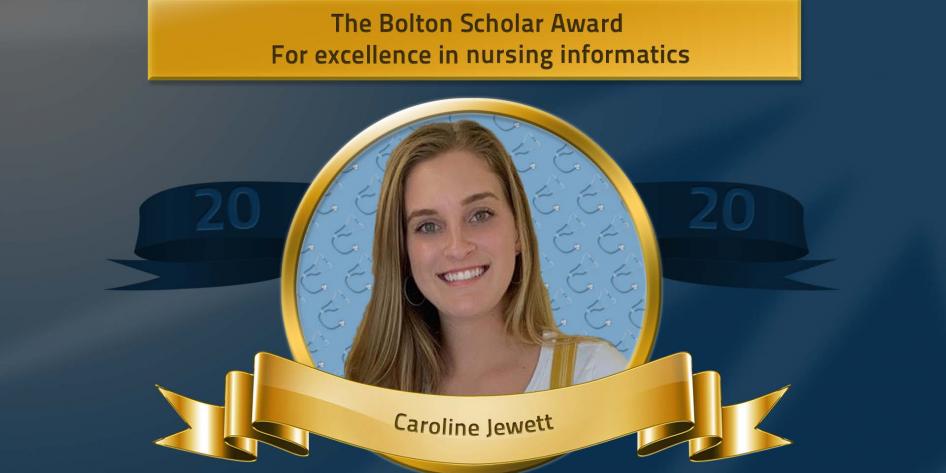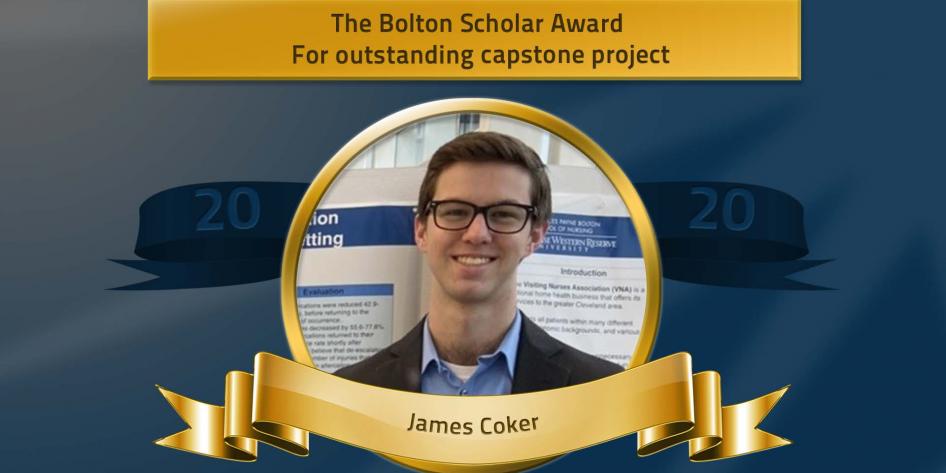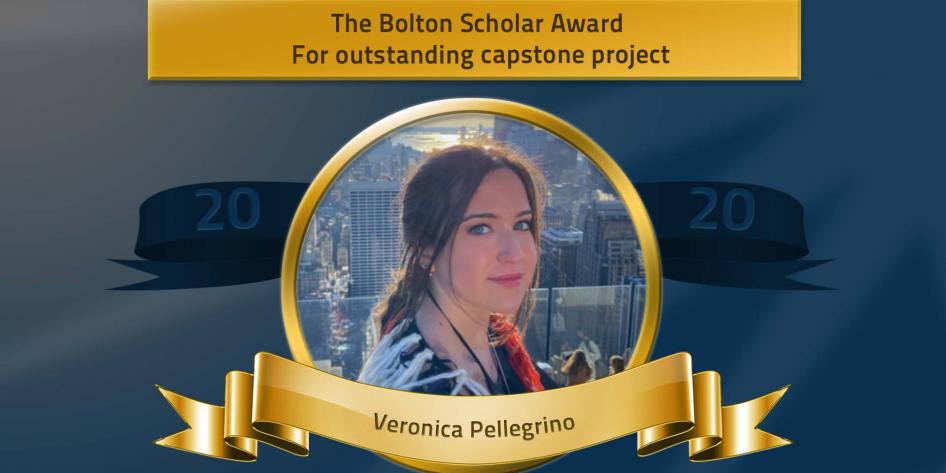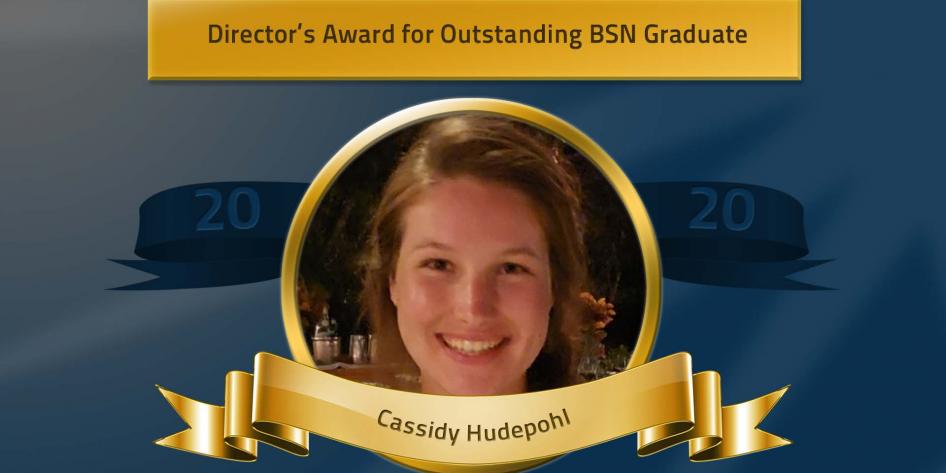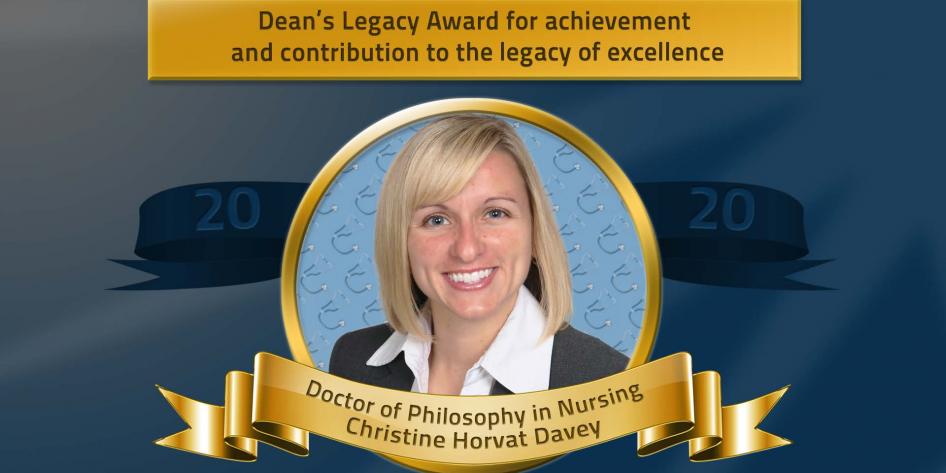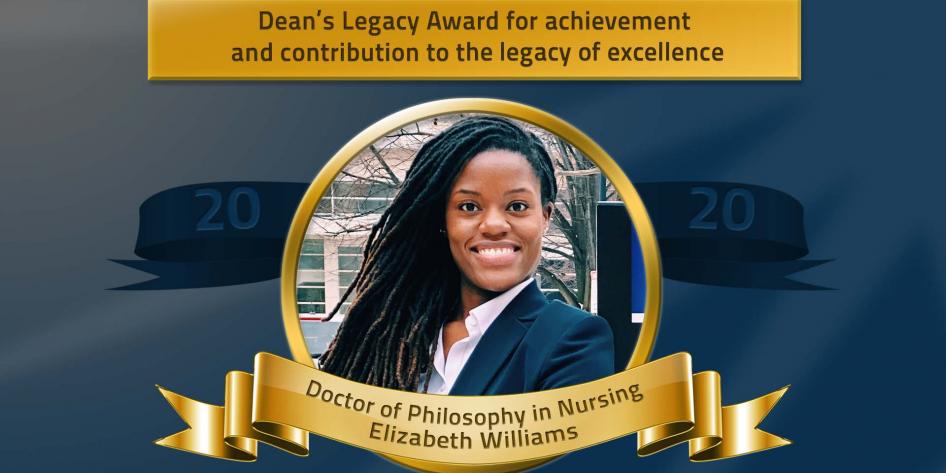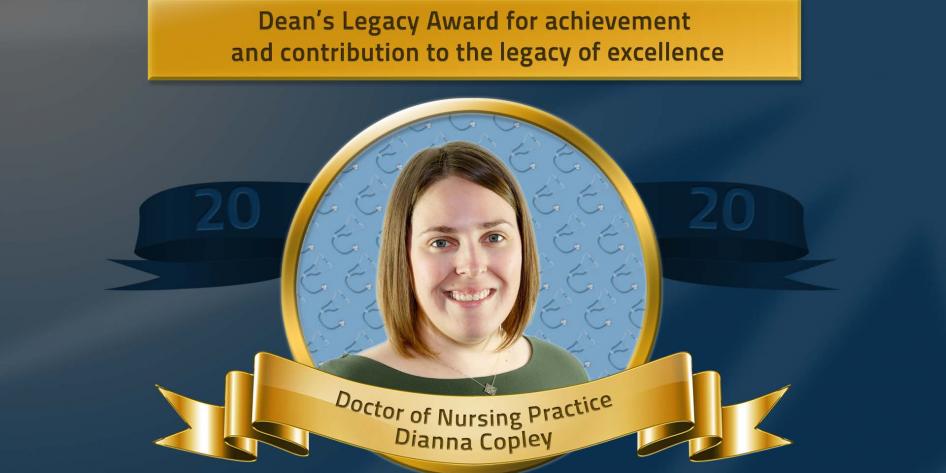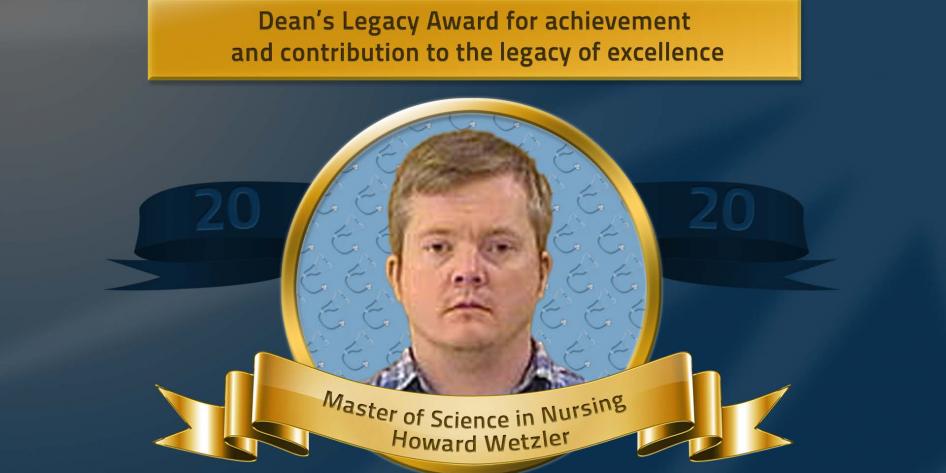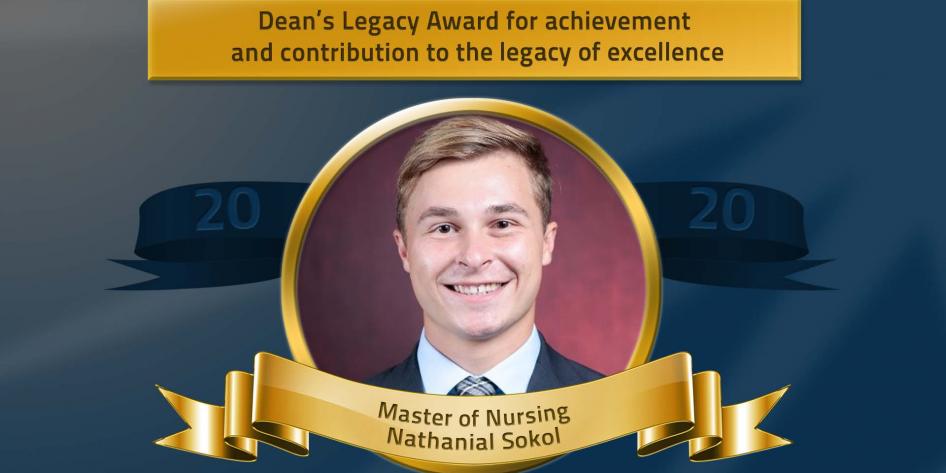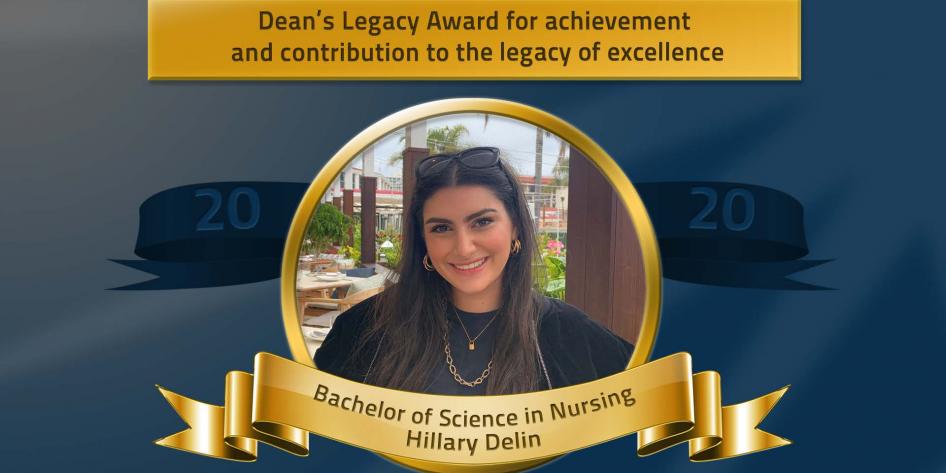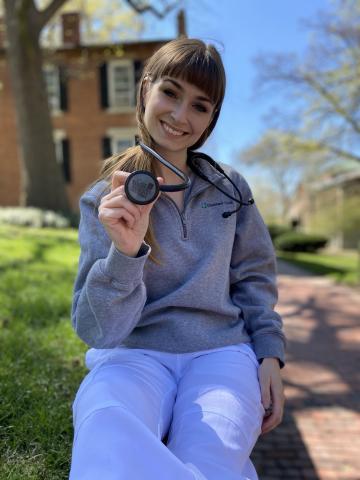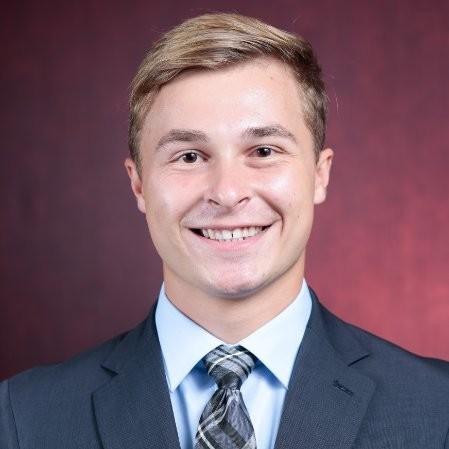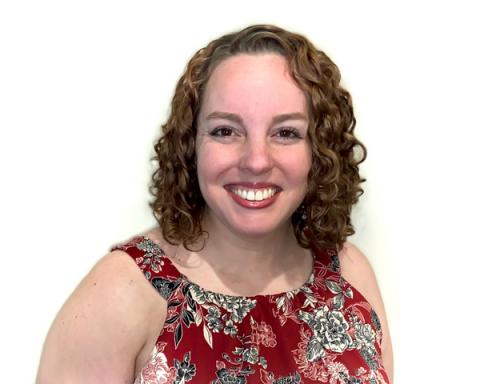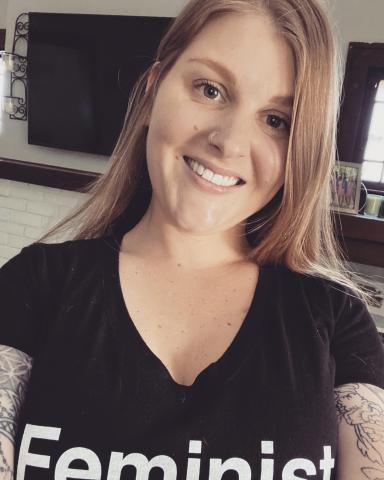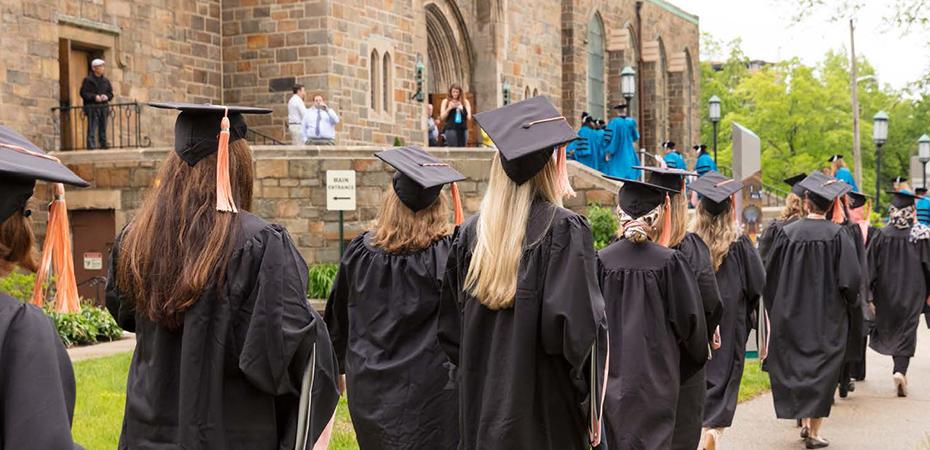
The Frances Payne Bolton School of Nursing extends hearty congratulations to the 2020 graduates! This class of graduates finished their final semester remotely, and has shown impressive resilience and flexibility during a chaotic time.
Watch the 2020 Virtual Pinning Ceremony
2020 Awards
Across all nursing programs (BSN, MN, MSN, DNP and PhD), 38 students have earned graduation awards in 2020. Please scroll through the gallery below
2020 Graduate Spotlights
Students at the Frances Payne Bolton School of Nursing are highly engaged and driven individuals. Nursing students commit not only to a difficult academic schedule, but also to a rigorous series of clinical rotations. Below, a few 2020 graduates share stories about their experience at CWRU, graduating amid a global public health crisis and advice for future nursing students.
For May 2020 BSN graduate Elizabeth Adams, her path to nursing school started with the question: What’s next?
“I actually didn’t know what I wanted to do. I knew wanted to help people, and that I was a people person,” she said. “I also knew I didn’t want to be stuck behind a desk.”
Research led Adams to understand that an undergraduate degree in nursing would provide her with a desirable skill set and a rich foundation for myriad possibilities.
“I can do anything with a nursing degree. I could go into politics and be involved in health care policy. In the clinical setting, I could become an advanced practice nurse practitioner. I could become a lawyer – there are so many paths and options available to nurses,” she said.
As a student at the Frances Payne Bolton School of Nursing, Adams has explored the world of nursing policy and politics by becoming involved with the Undergraduate Student Nurses Association (USNA). Every year, USNA hosts a national convention where chapters can present a resolution on a topic that they’d like the national officers and the National Student Nurses Association and other professional groups to advocate for on a larger scale.
“I went to the conference in Salt Lake City last year, and our resolution was on the benefits of comprehensive sexual education,” Adams said. “We knew it would be controversial, but as nurses one thing we thought was shocking was how little information our patients know and understand about their own bodies.”
Basing their argument on evidence-based research and structuring it around the Nursing Code of Ethics, the CWRU chapter’s argument was well received. The ethics code details required elements for ethical conduct, empowering nurses to make comprehensive decisions as clinical nurses, researchers, administrators and policy makers.
“Part of nursing is to be an advocate for our patients,” Adams added. “If we aren’t giving patients all the information, then we’re not giving them the capacity to make informed health decisions for themselves.”
For undergraduate nursing students at CWRU, clinical experience starts within their first semester as first-year students. That early exposure to clinical settings, which is uncommon in other undergraduate programs, has an impact.
“It has made me feel a lot more confident. I talk to friends at other nursing schools and they’re just as educated as I am, but I feel better able to walk into a patient’s room and be a lot more confident in my abilities,” Adams said. “For me, the long clinical experience at FPB was nice because I felt like I wasn’t learning inapplicable knowledge. I was learning something in class one day and then the next day I was applying it in my clinical rotation.”
Her experience in clinicals helped Adams decide on her first role after graduation.
“I appreciated that we had the ability and flexibility to rotate through so many clinical settings at FPB,” she said. “The operation room is so insane and I never thought I’d get the opportunity to see what I saw. I was able to sit in on an open-heart surgery and talk to the nursing team and the surgeon. It was wild.”
After graduation and passing her NCLEX exam (the licensing exam for registered nurses), Adams will be working in a Cardiovascular Intensive Care Unit. She’s been working in the unit as a clinical technician since the summer after her sophomore year.
Originally from Belpre, Ohio – a small city on the edge of the Ohio River in state’s southeast corner – the move to Case Western Reserve was a transition.
“Coming to CWRU, Cleveland felt like a huge city,” Adams said. “Where I’m from, I’m near the Marietta and Athens area (both university towns, as well), but in Cleveland and at CWRU I felt like I had my own space to grow. And that was important.”
Aside from her course work, clinical rotations and USNA involvement, Adams is active in Greek life on campus (Alpha Phi) and a member of Case Kismat Fusion Dance Team. Like all of the 2020 graduates, Adams said the abrupt end of her final semester as a result of the COVID-19 pandemic has been difficult to accept.
“It’s definitely been hard. I had a lot of discussions with family members about heading back to Cleveland or not,” she said. “It hit in the middle of spring break, and we had no clue where the nursing students had been or if the clinical sites would want people who had been traveling. Our professors did a really nice job to finding other ways to get those hours in for us through remote clinical labs and interactive classes.”
Nursing’s curriculum and clinical rotations place an emphasis on patient care and hands-on learning, and Adams admits it was a rough start but said she felt she was able to gain something from the experience.
“I appreciate that we were discussing our situation in our ethics classes, and the process behind the decisions made and what happens to ethics and triage in emergency situations,” she added.
With her involvement with USNA, Greek life and dance, Adams has traveled throughout the country meeting other nursing students at conferences and events. She said she knows recent nursing graduates who started their careers a month ago in the middle of the pandemic.
“We’re going to be learning through an entirely new mindset. Because I’m in an ICU, I’m in a unit that has ventilators,” she said. “It’ll be very interesting to see what (the COVID-19 situation) will be by the time I’m working. Since I’ve worked in the unit, I have a better understanding of what normal should look like.”
From a patient care perspective, Adams is interested to see how this pandemic will influence future generations.
“This is a major public health crisis and watching how it has been happening, I think back to my sociology courses and think about what impact is this going to have in 20 years,” she said. “If—in 20 years—I’m dealing with a 25- or 30-year-old, are they going to have different response to health care or me as the result of how their parents or loved ones interacted with them during this pandemic?”
As an involved member of the CWRU student body, Adams said graduating during the pandemic will be bittersweet.
“I’ll be sad to miss out on all those lasts—last meeting, last event—but the only reason I’m going to miss them so much is that they’ve been such amazing experiences,” she said. “For students considering studying nursing, I say take advantage of every opportunity that FPB and CWRU have to offer.”
For her fellow nursing classmates, who are headed into an industry managing a global health crisis, Adams takes comfort in something her father has said to her for years.
“It’s a quote I’ve focused on a lot, and I have it as my phone background: ‘You’re allowed to be nervous, but you’re not allowed to be scared,’” Adams said. “It’s OK that we’re nervous – this is a new time, but we don’t need to be scared. There are people to support us. Despite everything that’s happened in the past few months, we’ve had a great four years together.”
While at The Ohio State University, Nathanial Sokol worked at Wexner Medical Center as a patient advocate. Part of his role involved shadowing healthcare professionals on their rounds. As he shadowed registered nurses and nurse practitioners, Sokol knew he found a career that aligned with his aspirations.
“I was really interested in getting to know my patients, and learning about their care and treatment, and approaching medicine from a wholistic perspective,” he said. “I saw that the nurses were able to spend a lot more time with patients, and that’s what made me pursue nursing.”
While he completed with Master of Nursing degree at Case Western Reserve University’s Frances Payne Bolton School of Nursing, Sokol has been working as a nurse intern at MetroHealth main campus.
“A nurse intern is very similar to a nurse aid but I am able to complete and practice more skills because of the nursing education I received at Case,” he said. “I am looking forward to continuing to work with trauma and emergency patients in my next step as an emergency department nurse at Metro.”
After graduation and passing his NCLEX, Sokol said he’s planning on pursuing a certification for emergency nursing and getting as much experience as he can. He’s returning to FPB to continue his education and earn his MSN degree to become a Family Nurse Practitioner.
“I chose Case because it has been so innovative with its RN and NP programs,” he said. “Just considering the construction of the new HEC and implementation of the flight program simulator, Case has been making great improvements to how it teaches its future nurses.”
Sokol said he’s most interested in being an emergency nurse practitioner, but is considering pursuing flight nursing as well as he builds the foundations of his career. Though his final semester ended remotely due to the COVID-19 pandemic, Sokol said the crisis has reinforced his decision to become a nurse.
“As we move forward in the COVID crisis and beyond it, we must continue to be thorough with PPE and our own personal protection. Working during the COVID crisis also reminds me of the reasons that I chose the nursing profession,” he said. “Because patient visitation is limited at this time, I am spending more time connecting with patients and getting to care for them on the wholistic level that first inspired me to pursue nursing.”
For students contemplating a career in nursing, Sokol said a proactive approach will help them make decisions.
“Make sure that you do a lot of shadowing opportunities. Try to get involved in as many things as you can and hone in on your specific topic or area of interest,” he said. “You meet so many people and make so many connections when you get involved. It’s important to get out there and don’t be afraid to try.”
In June 2020, Jessica Shattuck, RN, MSN marks her eighth year as a nurse. It will be her first as an advanced practice nurse practitioner in Women’s Health – fulfilling a dream she’s had since the earliest years of her career.
“Most of my career has been spent in the neonatal ICU, taking care of premature and sick infants,” she said. “I’ve always had a love for this area of nursing, taking care of moms to be during and after their pregnancies. It’s where I fell in love with my career. I find personal fulfillment in supporting women during monumental life transitions.”
Shattuck’s first stop on her path to becoming a nurse practitioner didn’t start at Case Western Reserve University. She started a Neonatal Nurse Practitioner program at another university but realized quickly that though she enjoyed working with expectant mothers and infants, she didn’t want to work in the NICU for the rest of her career.
“That’s where you’re sort of limited with a Neonatal NP. I wanted to see other things, and focus on women’s health,” she said. “Somewhere along the line someone convinced me that the Family Nurse Practitioner program was the best route for that – but really all I wanted to do was care for women.”
Shattuck switched from a Neonatal NP to a Family NP program and was halfway through the program when entered the only semester when she’d be learning about women’s health.
“It was two days of lecture and 20 clinical hours of women’s health specific time. That’s all I was going to get,” she said. “I thought, ‘Oh my gosh, this is not enough experience for me to do women’s health. I want more.’”
While she completing the women’s health clinical hours in her FNP program, she spoke with her preceptor who was a midwife at University Hospitals. Upon hearing Shattuck’s want for more women’s health exposure – said, “Did you know Case has a Women’s Health Nurse Practitioner and Midwifery program?”
Within that same semester Shattuck transferred to the Frances Payne Bolton School of Nursing at CWRU, but it meant completely starting over.
“I had to start from scratch, which was hard to do, but it was all worth it,” she said. “I felt stronger and more confident coming in with some background, and now my whole program was nurse midwifery and women’s health.”
Initially, Shattuck was only considering the women’s health program, but during her interview she learned that the school’s midwifery program only required two more semesters. She decided to go for it.
While she graduates with her MSN in Women’s Health in May 2020, her midwifery studies were put on hold with the onset of the COVID-19 pandemic. As the virus spread throughout the U.S., hospital systems and clinical sites suspended access to students performing clinical rotations.
“I have 10 more weeks of clinicals to complete,” she said. “It’s only 10 weeks, I just keep telling myself that.”
While the delay in finishing her midwifery courses may be bittersweet, Shattuck recently added another accomplishment to her list by winning the America College of Nurse Midwives #WhatMidwiferyMeansToMe video contest.
Shattuck created the video for a class project that required a creative venture to promote the profession of midwifery, and decided to submit it to ACMN too when she learned about the contest.
“One of the prompts was ‘why is midwifery care the right choice for you?’ I wanted to show local midwives and show what they do for patients,” she said.
Shattuck, who is a mom of two herself, reached out on Facebook to gather experiences her friends had with midwives. The mother of one of her daughter’s friends responded; a midwife had attended the births of all five of her children.
“I loved her story,” Shattuck said. “There are snippets of her testimony read over all the images and video of local midwives I collected. Midwifery practice is impactful to our patients. And for me, it’s a feeling of being part of something big. Midwives have a special connection, an opportunity and privilege to be a part of these women’s lives.”
Upon her graduation with her MSN in Women’s Health, Shattuck reflects about the choices she’s made through the years.
“Over my career, I’ve had to make choices on whether to stay with what I know or venture into something new. I’ve always come back to women’s health and caring for babies,” she said. “Any time I ventured outside of those areas, I never liked what I was doing.
“When I came back to what I loved, I finally felt I was learning what I wanted learn,” she added. “I am so, so excited for my future career.”
Now a double alumna of the Frances Payne Bolton School of Nursing at Case Western Reserve University, Olivia Brewer, RN, MN, MSN, knew as a teenager that she would be working in the healthcare field.
“I had worked as a nursing assistant since I was 16. When I started college, I thought I wanted to go more of a medicine route, and go through a physician assistant program,” she said. “But through personal experience and life experience, I realized that my beliefs aligned more with nursing than medicine”
After earning her bachelor’s degree in health science, Brewer knew she wanted to attend FPB’s Master of Nursing program, designed for students with non-nursing undergraduate degrees.
Brewer started the MN program in 2015, and graduated in 2017.
“I fell in love with midwifery during that time period and decided not to take time off, so I started my MSN in Summer 2017,” she said.
But in Spring 2018, serious health issues forced Brewer to take a leave of absence.
“It was heartbreaking, but I needed to take the time,” she said. “I took a year off. I worked as a registered nurse in a skilled nursing facility and focused on getting healthy and strong. I was nervous to start clinical after being away from it for a year, but once I was there it was like I never even left. It was very reassuring that I was right where I was supposed to be. When I came back in Spring 2019, the faculty was great. They helped me transition right back into the classroom and clinical.”
Brewer threw herself right back into the academic grind. And despite having to retake a couple classes and her final semester being cut short due to the COVID-19 pandemic, she’s excited to graduate in May 2020.
“After being with these women in class and clinical for the last couple years, to not see them the last weeks of school was kind of sad. We wished we could have been there for each other in person. We just had our hand blessing ceremony, which was virtual given the circumstances. It was the most – it felt like graduation finally,” she said. “The end of this semester, it almost hasn’t felt real. It went so fast and with everything with the pandemic—it changes your perspective a lot.”
For now, Brewer is focused on studying and passing her midwifery board certification exam. Ideally, she’d like to stay in the Cleveland area when she finds a position.
As a nurse and midwife, Brewer said the COVID-19 pandemic likely will alter how healthcare professionals and the public approach health and public safety.
“It’ll be interesting to see how this changes the future of our healthcare system,” she said. “I’m interested to see the changes, especially for women with prenatal visits and other women’s health needs. We’re looking more toward telemedicine changing the structure of how we provide prenatal care.”
Brewer said she’s seen the news reports of pregnant women giving birth during the pandemic without their planned support system in the room.
“Childbirth is such an intimate experience. A lot of women have an image of what their child’s birth is going to be like. They want their mom, partner, friends or doula in the room,” she said. “One of the things you need during your birth is a good support system, and since moms can’t have that right now it calls on us—nurses and midwives—to step our game up and be there for our patients that much more.”
#CWRUGrad2020 on Social Media
Thank you to the FPB nursing graduates who shared their accomplishments on social media during commencement weekend. We had such a fun time celebrating with you!
It’s official: https://t.co/UZIHi2DZlH!!!
— Ophelia M. Byers (@DrByersDNP) May 17, 2020
Look, Mom: We did it! 🕊💔♥️
Thanks, @byers1926, for the backyard photo session...and for everything 🥰!
To our children: It’s all for you.@cwru @fpbnursing #DNP#DoctorofNursingPractice#CWRUGrad2020 #VirtualReality#ShineOn pic.twitter.com/iWpKTpvbzA
Not the PhD commencement weekend I always dreamed of, but still finding ways to celebrate! Thanks for the past 9 years, @cwru and @fpbnursing! 🎓🥳 #AcademicChatter #phdchat #PhD #Graduation2020 pic.twitter.com/nBwwpbEUYW
— Julia Blanchette, PhD, RN, CDCES (@JBlanchetteCDE) May 17, 2020
I’m deeply grateful to all who helped and supported me on this wonderful journey! Special thanks to Dr. Joyce Fitzpatrick, my amazing adviser for her encouragement and continued mentorship! #DNP #CWRUGrad2020 @pnanewyork @fpbnursing pic.twitter.com/98wJJOMoaW
— Warly Remegio (@WarlyAR) May 18, 2020


